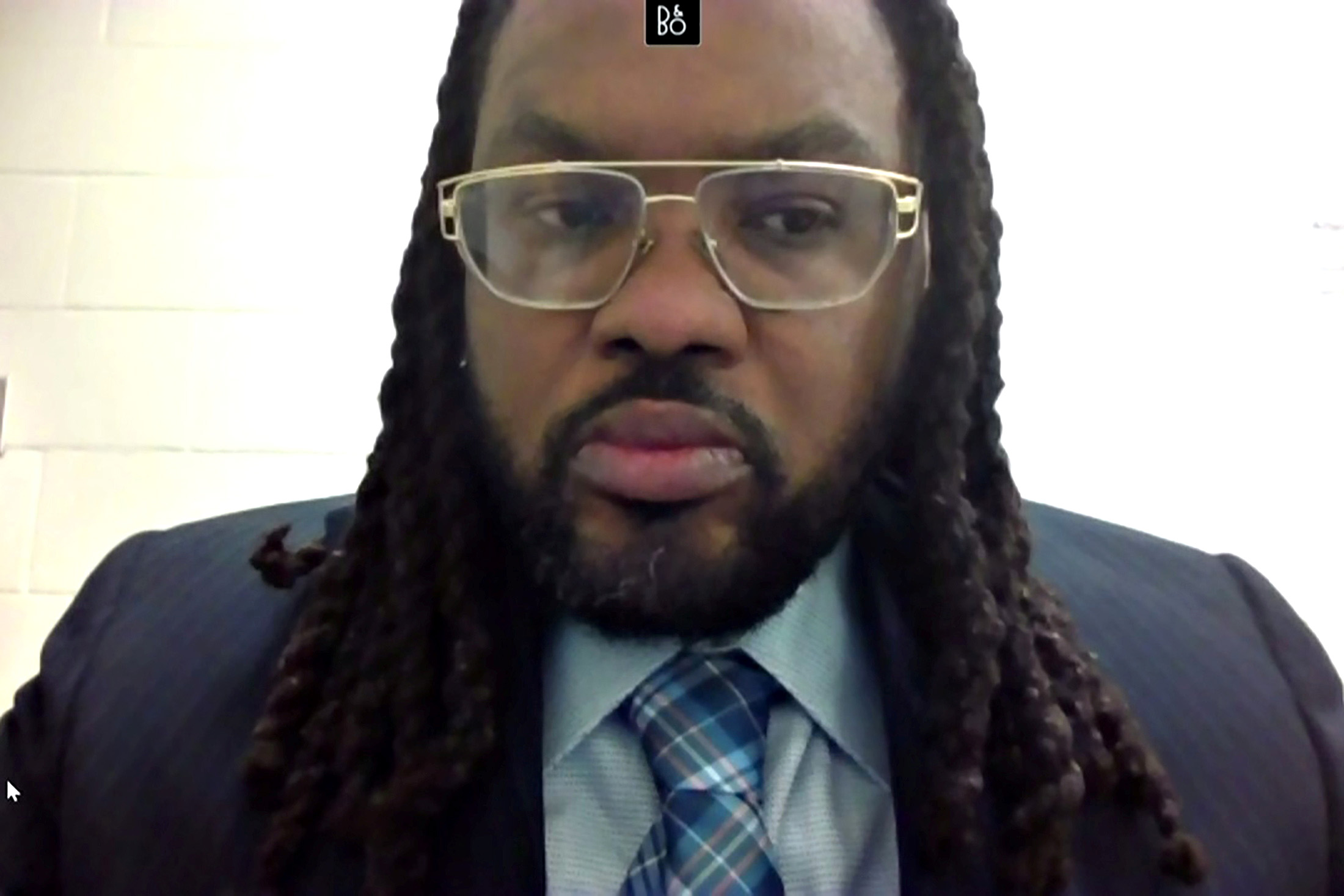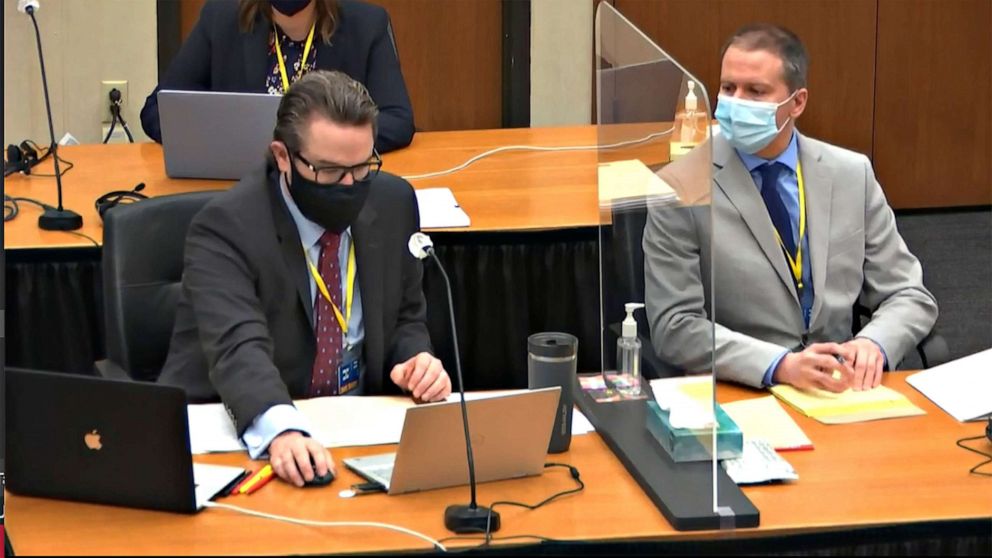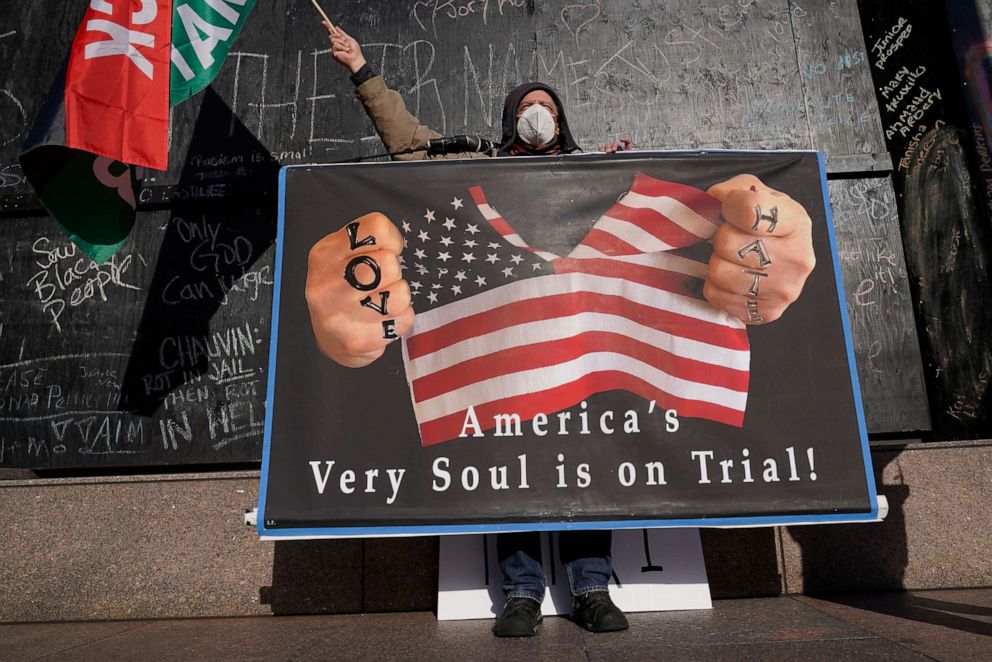Man in car with George Floyd the day he died doesn't want to testify in Derek Chauvin trial
The defense wants to grill the witness on drug use.
A key witness in the trial of Derek Chauvin is threatening to invoke his Fifth Amendment right against self-incrimination because his lawyer contends anything he says about his alleged drug activity with George Floyd could leave him vulnerable to being charged with third-degree murder in the death of the 46-year-old Black man.
Morries Hall, currently in jail, appeared via Zoom at a court hearing on Tuesday morning in which his attorney argued he has no immunity from prosecution that stems from testimony about his and Floyd's behavior while seated in a Mercedes Benz SUV shortly before police arrived on May 25 and arrested Floyd.
In his opening statement last week, Chauvin's attorney, Eric Nelson, told the jury they would hear from Hall, who has been identified during trial testimony as an alleged drug dealer from whom Floyd obtained narcotics.

"This will include evidence that while they were in the car, Mr. Floyd consumed what were thought to be two Percoset [painkiller] pills," Nelson said during his opening statement, naming Hall and Shawanda Hill, Floyd's former girlfriend, as passengers in the SUV with Floyd outside the Cup Foods prior to police arriving on scene.
Police were called to the store after Floyd allegedly used a phony $20 bill to purchase a pack of cigarettes.
"Mr. Floyd's friends will explain that Mr. Floyd fell asleep in the car and that they couldn't wake him up to get going, that they thought the police might be coming because now the store [employees] were coming out," Nelson said.
Nelson has been attempting to undermine the prosecution's primary allegation that Chauvin killed Floyd by burying his knee in the man's neck for nine minutes and 29 seconds, cutting off blood to his brain. Nelson has countered that a combination of the powerful drugs fentanyl and methamphetamine, both found in Floyd's system during an autopsy, and undetected heart disease is what killed the man, making Hall a valuable witness to Chauvin's defense.

Hall's lawyer, Adrienne Cousins, an assistant Hennepin County public defender, filed a motion to quash subpoenas from both the prosecution and defense for her client to take the witness stand.
"Your honor, I cannot envision any topic that Mr. Hall would be called to testify on that would be both relevant to the case that would not incriminate him," Cousins told Judge Peter Cahill during Tuesday's hearing, with the jury absent from the courtroom. "Mr. Hall's testimony in these matters would specifically put him in the position of being in very close proximity to Mr. Floyd, in a vehicle where drugs were found during a search by police following Floyd's death."
Courtney Ross, Floyd's girlfriend at the time of his death, last week gave testimony that Hall sold drugs to Floyd. Cousins said Hall's testimony could serve as a "link in the chain" for the drugs Floyd ingested shortly before his death, leaving him open to a third-degree murder charge.
Nelson said that in addition to Floyd's behavior in the SUV that day, he also wants to question Hall about where Floyd got the counterfeit $20 bill, whether Floyd obtained drugs from him, their activities before they arrived at Cup Foods, their interactions with employees inside the store, why he and Floyd gave police false names and why Hall left the state immediately after Floyd's death. He also said he intends to ask Hall about what was in a backpack he was seen holding during the encounter with police.

"Mr. Hall was seen on a security camera taking something out of a backpack and throwing it," Nelson said during Tuesday's hearing. "I would ask him ... what it was that he threw."
Cahill asked Nelson to put his questions in writing and said he is considering allowing him only to question Hall about his observations of Floyd suddenly falling asleep in the SUV, but nothing further. He said he will hold another hearing out of the jury's presence to determine if it is possible for Hall to answer the limited questions without incriminating himself.
Prosecutor Matthew Frank told Cahill that such a narrow scope of questioning would create a "huge problem" for the prosecution.
"This questioning would not exist in a vacuum," Frank argued. "There would be other questioning and we would have the right to question him about his credibility and other aspects of that interaction that would lead, unfortunately and potentially, to him invoking question by question in front of the jury.
"Our dog in the fight is a fair trial for Mr. Chauvin and one trial," Frank said. "What we can't have is an invocation of this privilege in front of the jury."
Cahill said he will make a decision on whether to allow Hall to take the witness stand following the next hearing on the matter, which he intends to schedule once Nelson submits his question in writing.



